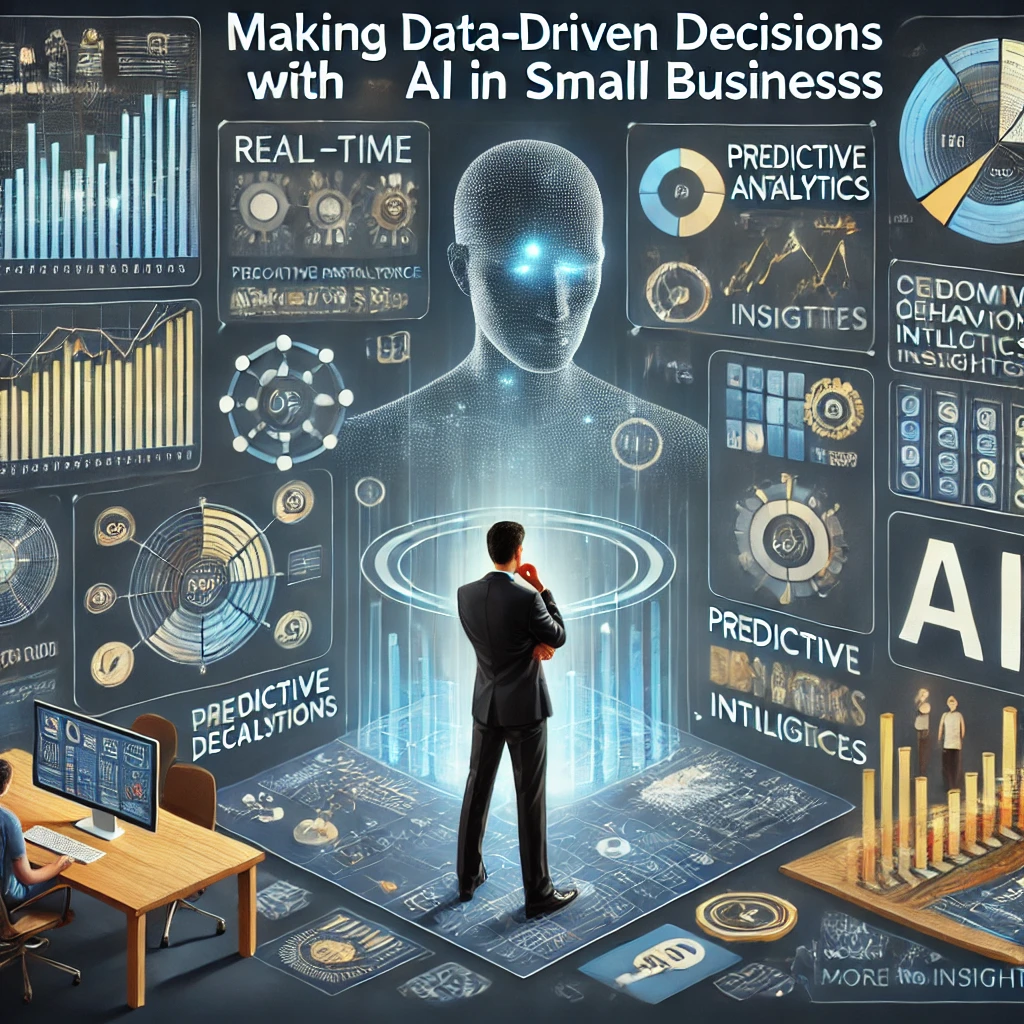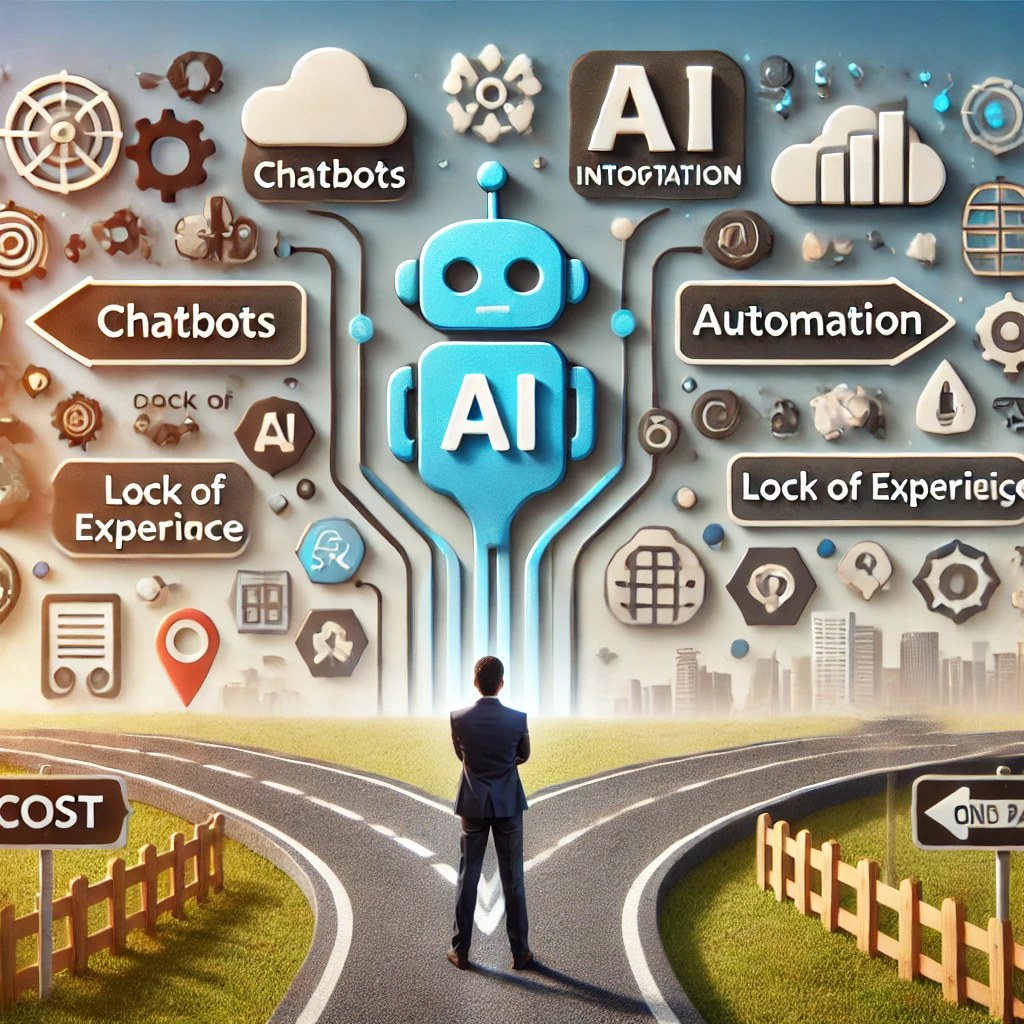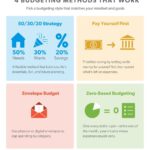The Role of AI in Small Business Operations: A Deep Dive into Efficiency, Innovation, and Growth
Artificial Intelligence (AI) has long been viewed as a powerful tool for large enterprises with vast resources. However, recent advances in technology have made AI increasingly accessible to small businesses, transforming how they operate and thrive in competitive markets. From automating routine tasks to optimizing decision-making, AI is playing a critical role in driving efficiency, personalization, and growth.
1. AI: A Game-Changer for Small Business Operations

AI is rapidly becoming an essential tool for small businesses across industries. A recent Gartner study reported that nearly 45% of small businesses have implemented AI-driven solutions. This shift is due to advancements in machine learning, natural language processing (NLP), and automation tools that are both affordable and easy to use. The result? Enhanced productivity, improved customer experiences, and data-driven insights that allow small businesses to scale faster.
Key Benefits of AI for Small Businesses
- Operational Efficiency: AI automates repetitive tasks, allowing teams to focus on higher-level strategic work.
- Customer Engagement: With AI-driven chatbots and personalized marketing, small businesses can create tailored experiences for their customers.
- Data Insights: AI transforms raw data into actionable insights, helping small businesses make informed decisions.
- Cost-Effective Solutions: AI tools, now available at affordable price points, enable small businesses to operate at the level of larger competitors.
2. Enhancing Customer Experience with AI

Chatbots and Virtual Assistants
AI-powered chatbots and virtual assistants are revolutionizing customer support. These systems use NLP to understand customer inquiries and respond in real time, providing instant solutions without requiring human intervention. This is especially beneficial for small businesses that lack the resources for a large customer support team.
- Example: Many small e-commerce businesses use platforms like Tidio or Drift to integrate AI chatbots on their websites. These bots help answer frequently asked questions, guide users through the purchasing process, and even handle complaints. Not only does this save time, but it also improves the customer experience by offering 24/7 support.
Personalization Through AI
AI helps small businesses create personalized customer experiences by analyzing behavioral data. Machine learning algorithms can suggest products or services based on a customer’s past interactions, creating a more engaging and customized shopping experience.
- Case Study: Cratejoy
Cratejoy, a subscription box marketplace, uses AI algorithms to tailor its product recommendations to each user’s preferences. By analyzing purchase history and browsing patterns, Cratejoy’s AI provides customers with personalized suggestions, driving both retention and conversion rates.
Actionable Step: To personalize the customer journey, small businesses can leverage tools like Segment or Active Campaign, which allow businesses to tailor marketing strategies based on customer data.
3. Streamlining Operations with AI-Driven Automation

Automating Routine Tasks
AI can handle various routine administrative tasks, from data entry to payroll processing. AI-driven platforms streamline workflows, reduce human error, and enhance efficiency.
- Example: QuickBooks AI
QuickBooks is an accounting software that leverages AI to automatically categorize expenses, reconcile transactions, and predict cash flow trends. For small businesses, this translates into less time spent on bookkeeping and more time available for growth-focused activities.
Supply Chain Optimization
Inventory management and supply chain optimization are critical for small businesses, particularly in retail and manufacturing. AI-driven tools help businesses predict demand, manage inventory levels, and reduce stockouts or overstock situations.
- Example: Inventory Planner
Inventory Planner uses AI to analyze past sales data and forecast demand, allowing small businesses to optimize stock levels. This helps reduce costs associated with excess inventory and ensures that products are available when customers need them.
Actionable Step: Tools like TradeGecko or ShipBob offer small businesses AI-powered supply chain management, allowing them to track inventory and predict demand more effectively.
4. AI in Marketing and Sales: Optimizing Campaigns

AI-Driven Marketing Automation
AI plays a vital role in digital marketing, enabling small businesses to optimize their campaigns. From social media ads to email marketing, AI platforms analyze customer data and identify the best times to send messages, segment audiences, and create dynamic content.
- Example: Mailchimp AI
Mailchimp offers AI-powered marketing automation that allows small businesses to deliver personalized email campaigns based on user behavior. It also suggests the best time to send emails for maximum engagement.
Lead Generation and Sales Forecasting
AI helps businesses prioritize leads by analyzing behavior and predicting the likelihood of conversion. AI tools provide insights into which leads are most valuable, allowing sales teams to focus their efforts strategically.
- Example: Zoho CRM
Zoho’s AI-driven CRM helps small businesses identify high-potential leads, automating follow-up processes and providing real-time data on sales trends. This helps smaller teams close more deals with fewer resources.
Actionable Step: Small businesses can start with AI-powered platforms like HubSpot or Pardot, which provide lead scoring and marketing automation.
5. Making Data-Driven Decisions with AI

AI can turn vast amounts of data into actionable insights. Small businesses often generate data from various sources—sales, customer interactions, social media—but lack the tools to analyze it effectively. AI-driven analytics platforms offer a solution by providing real-time data analysis that guides strategic decisions.
AI-Powered Business Intelligence
AI can help small businesses visualize their data through intuitive dashboards and reports. This enables them to track performance metrics, monitor KPIs, and identify opportunities for improvement.
- Example: Tableau
Tableau’s AI-powered analytics tools help small businesses track key metrics in real time, providing data-driven insights that inform everything from marketing strategies to operational decisions.
Predictive Analytics for Smarter Growth
By using predictive analytics, small businesses can anticipate market trends, forecast sales, and understand customer behavior patterns. This proactive approach helps businesses stay ahead of the competition.
- Case Study: Red Roof Inn
Red Roof Inn uses AI-powered predictive analytics to forecast customer demand during bad weather conditions. By targeting customers whose flights were canceled, they increased their bookings significantly during such disruptions.
Actionable Step: Implement AI-powered analytics platforms like Power BI or Looker to gain deeper insights into your business data and make informed decisions.
6. Challenges in AI Adoption for Small Businesses

Despite its immense potential, AI adoption comes with challenges for small businesses, including:
- Cost Barriers: Initial implementation costs can be high, though affordable solutions are becoming more common.
- Lack of Expertise: Many small businesses lack in-house AI expertise, making it harder to integrate advanced tools.
- Data Privacy Concerns: Using customer data responsibly and adhering to regulations like GDPR is critical but can be complex for small businesses.
Overcoming the Challenges
- Start Small: Begin with low-cost, easy-to-implement tools that solve specific business problems.
- Partner with Third-Party Providers: Outsource AI development and management to companies specializing in AI solutions for small businesses.
- Prioritize Compliance: Choose AI tools that provide built-in compliance features and prioritize data privacy.
Frequently Asked Questions
1. What is the role of AI in small business operations?
The role of AI in small business operations includes automating routine tasks, enhancing customer engagement, and providing data-driven insights for better decision-making.
2. How does AI improve the role of customer service in small business operations?
AI improves the role of customer service in small business operations by using chatbots and virtual assistants to provide 24/7 support, personalize experiences, and resolve issues faster.
3. What are the benefits of AI in small business operations?
The role of AI in small business operations brings benefits like increased efficiency, reduced operational costs, improved customer satisfaction, and better decision-making through data analysis.
4. Can AI reduce costs in small business operations?
Yes, the role of AI in small business operations helps reduce costs by automating repetitive tasks, optimizing workflows, and minimizing errors, allowing businesses to operate with fewer resources.
5. How can AI enhance marketing in small business operations?
AI enhances the role of marketing in small business operations by analyzing customer data, automating personalized campaigns, and optimizing ads based on user behavior, increasing engagement and sales.
6. Is AI necessary for improving decision-making in small business operations?
Yes, the role of AI in small business operations is crucial for improving decision-making by analyzing large data sets to provide actionable insights and predictive analytics.
7. What challenges exist in adopting AI for small business operations?
Challenges in the role of AI in small business operations include cost barriers, lack of technical expertise, and concerns about data privacy and security, but these are becoming more manageable with accessible solutions.
8. How can small businesses start integrating AI into their operations?
To begin integrating the role of AI in small business operations, start with affordable tools for automating tasks like marketing, customer service, or data analysis, and scale up from there.
9. How does AI help with inventory management in small business operations?
The role of AI in small business operations aids inventory management by predicting demand, optimizing stock levels, and automating supply chain processes to reduce waste and stockouts.
10. Can AI improve the efficiency of small business operations?
Yes, the role of AI in small business operations improves efficiency by automating repetitive tasks, streamlining processes, and allowing employees to focus on more strategic activities.
Conclusion: AI as a Catalyst for Small Business Success
AI is no longer a futuristic concept—it’s a practical, accessible tool that small businesses can leverage today. Whether it’s improving customer interactions, optimizing operations, or making data-driven decisions, AI offers small businesses the ability to compete with larger enterprises and scale more effectively. By starting small and focusing on high-impact areas, small businesses can harness the power of AI to drive sustained growth.
Key Takeaways:
- AI is transforming small business operations by automating tasks, personalizing customer experiences, and offering valuable insights.
- Starting with affordable AI tools for marketing, sales, and customer service can quickly boost efficiency and growth.
- The challenges of AI adoption are real but manageable with the right strategies and tools.
Small businesses that embrace AI today are well-positioned to lead in tomorrow’s competitive landscape.
To explore the other side of the coin, check out our detailed article on the Advantages of Quantum Computing. Discover how this revolutionary technology can transform industries like cryptography, pharmaceuticals, and artificial intelligence, and why it’s generating so much excitement despite the challenges.
For more detailed insights into the advantages of quantum computing, you can explore this comprehensive resource from IBM on Quantum Computing. It provides in-depth explanations of quantum principles, practical applications, and the future of this groundbreaking technology.








1 thought on “The Role Of AI In Small Business Operations”